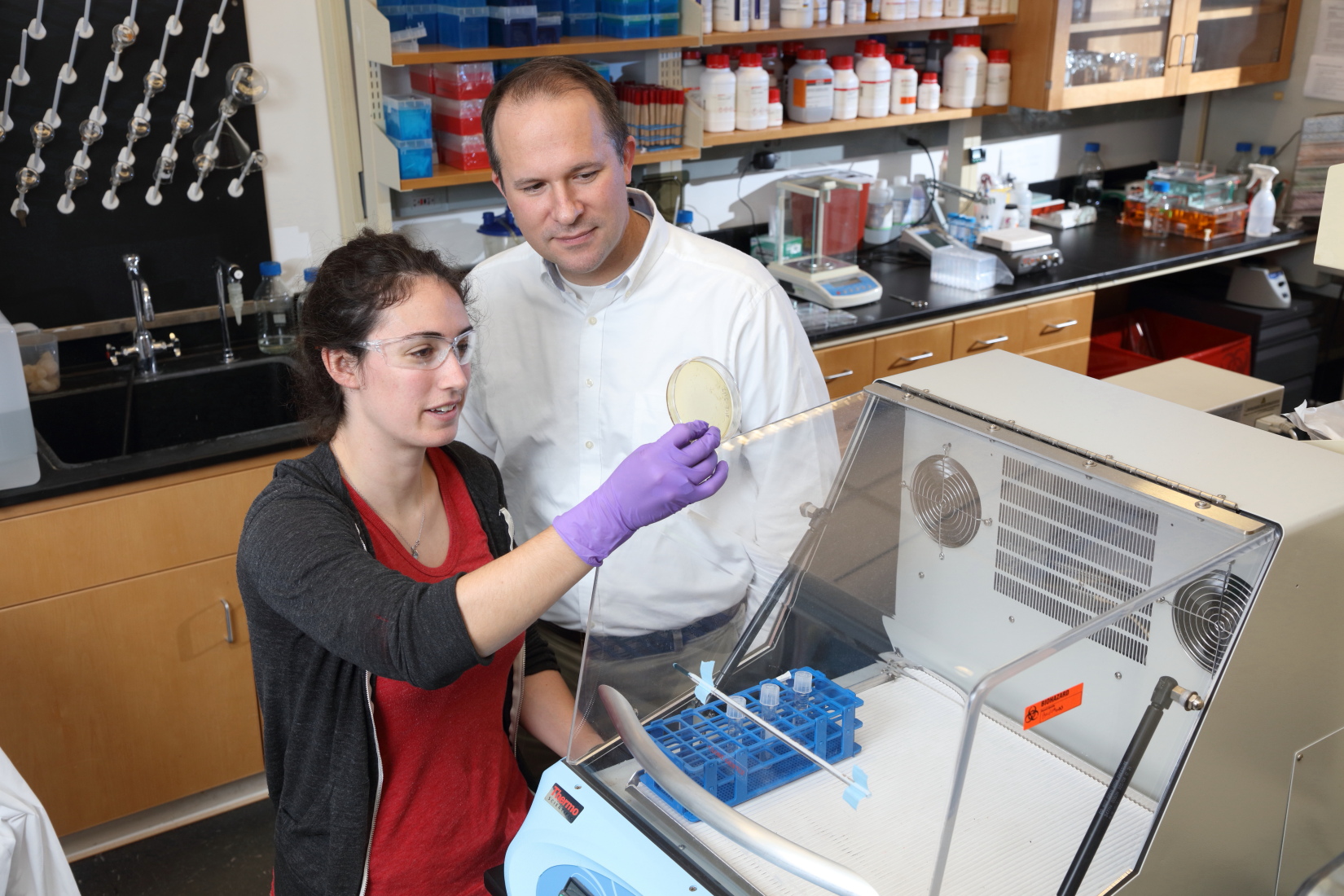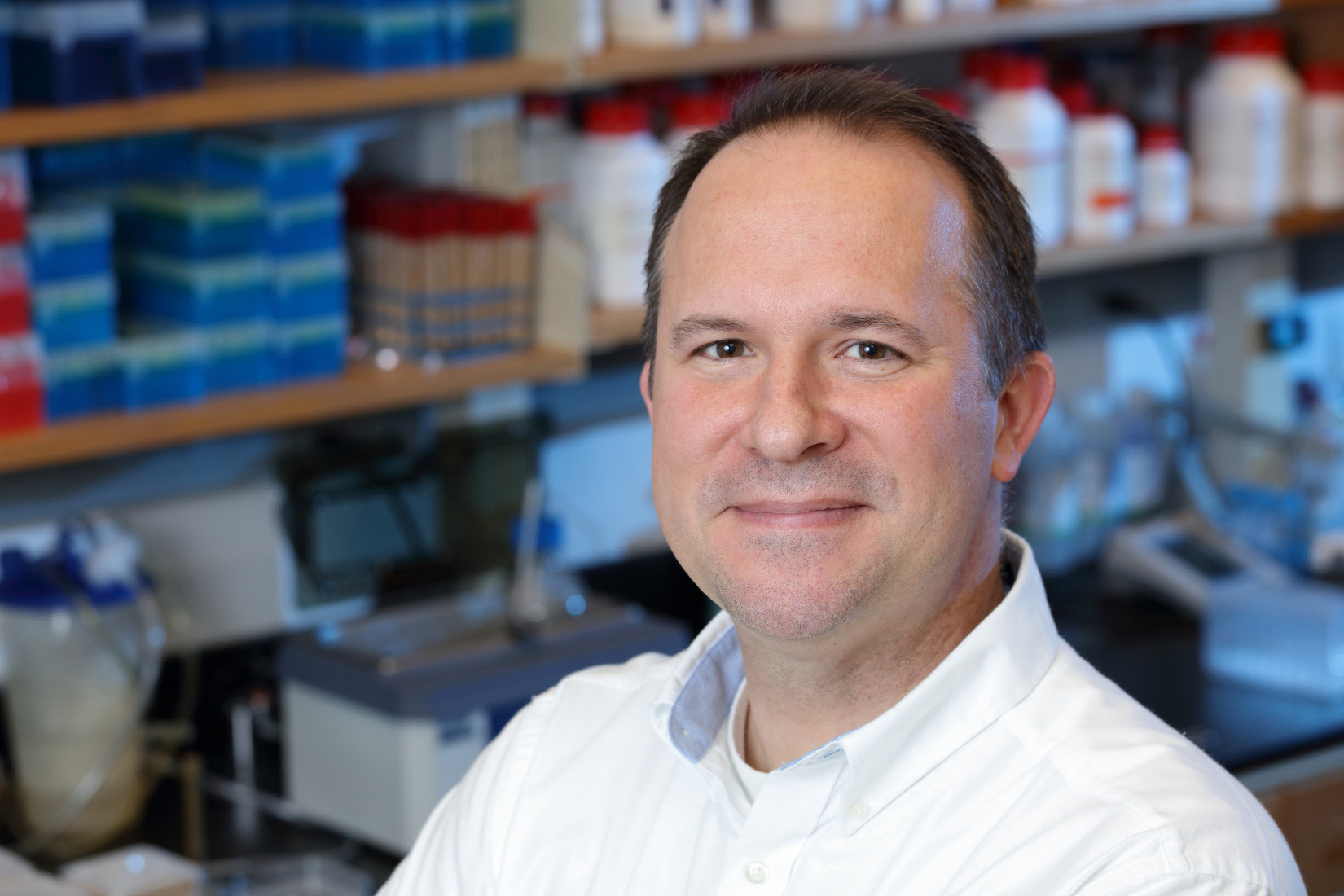University of Virginia researchers will launch a new training program in biomedical data sciences over the next five years, thanks to a $1.43 million National Institutes of Health grant.
Called “Big Data 2 Knowledge,” the five-year grant program will finance a pre-doctoral training program focused on teaching scientists to work at the interface of computer science, statistics, “big data” and biomedicine, an area where there is a nationwide need. This grant will fund six pre-doctoral students in the 2016-17 academic year and then three a year after that.
“UVA’s selection is an indication of the quality of research we have in this interdisciplinary area, the quality of the training activities we have in existence already, the vision we’re developing and new programmatic developments that are emerging,” said Jason Papin, a professor of biomedical engineering and principal investigator for the grant.
“In awarding UVA this grant, the National Institutes of Health has recognized the importance of tapping big data to advance biomedical science and engineering,” said Craig Benson, dean of UVA’s School of Engineering and Applied Science. “This ultimately will lead to significant advances in health care, which is our end game.”

Jason Papin, a professor of biomedical engineering and principal investigator for the grant, works with Laura Dunphy, a first-year PhD student in biomedical engineering training in the Papin lab. (Photo by Tom Cogill)
Other members of the steering committee include Alison K. Criss, associate professor of microbiology, immunology and cancer biology in the School of Medicine; Dr. James H. Harrison, associate professor and director of the Division of Biomedical Informatics in the Department of Public Health Sciences; Kevin Janes, an associate professor of biomedical engineering; and Karen Kafadar, Commonwealth Professor and chair of the Department of Statistics in the College of Arts & Sciences.
The training program will use data science information systems that allow researchers to analyze large amounts of complex biological and medical information when tackling biomedical problems. UVA has been investing heavily in data science, including $10 million for the Data Sciences Institute.
“Biomedical big data has its own unique characteristics compared to other big data types,” Papin said. “You can’t just train a ‘big data scientist’ and say ‘OK, now here are biomedical big data.’ The tools need to be different; an understanding of biomedical data’s peculiarities and unique characteristics make the need for training a scientist who understands the fusion of data science and biology.”
The grant allows the researchers to act as mentors, and the doctoral students who are trained and emerge from the program will be well-suited to tackle many of the most cutting-edge problems in health sciences.
“UVA is a marvelous environment for developing these kinds of cross-school initiatives,” Papin said. “With faculty from across the entire University, we came together to develop a really unique training program that will have a tremendous impact on the Ph.D. education we can provide.”
Aside from providing UVA doctoral students an opportunity to engage in cutting-edge work, Papin said they will have access to a network of other training programs with which they will be engaged. There is an annual meeting of all grantees in the biomedical big data community and regular conference calls.
“It creates an opportunity to nucleate new research directions as students and faculty work together across Grounds,” Papin said.
Media Contact
School of Engineering and Applied Science
emather@virginia.edu (434) 924-1381
Article Information
April 15, 2016
/content/big-data-meets-big-bio-grant-provides-training-opportunities-grad-students

